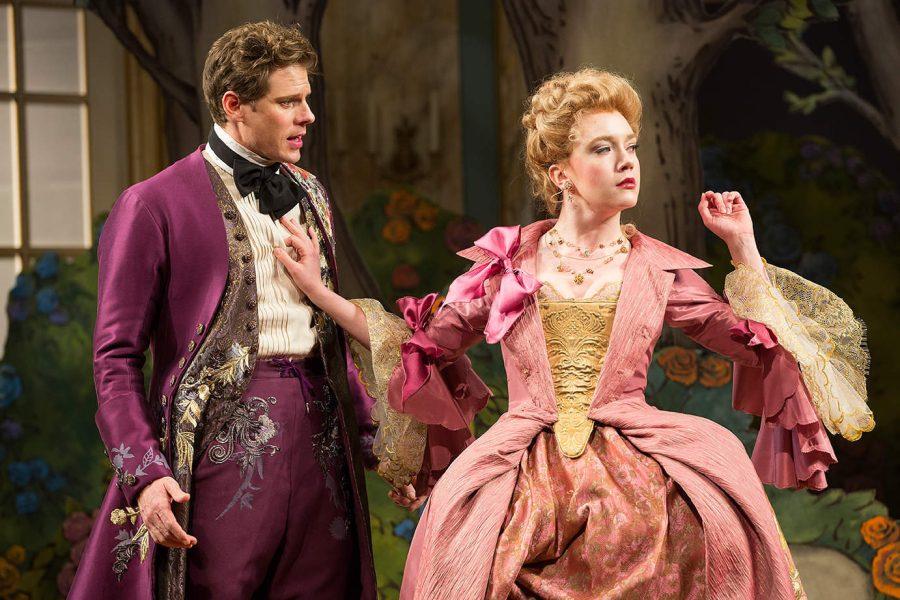Rating: 3.5/5.0
Directed by: Michael Kahn
Written by: David Ives
Starring: Christian Conn, Cary Donaldson, Amelia Pedlow, Dina Thomas, Adam LeFevre
Location: The Old Globe
Runs: Jan. 30 to March 6
In the 18th century, there were a considerable number of “metromaniacs” (poetry fanatics) who crazily and easily fell in love with well-written poems in France. Normally, their affections extended to the authors of the poems. Some of these metromaniacs even publicly courted lady poets whom they appreciated. As one of these hopeless lovers, the famous French writer Voltaire conveyed his feelings to Mademoiselle Malcrais de La Vigne, who was actually a man using a feminine penname. After his real identity, Paul Desforges-Maillard, was revealed, French dramatist Alexis Piron wrote a comedy named “La Metromanie” based on this ridiculous anecdote.
Adapted from “La Metromanie,” “The Metromaniacs” features a group of poetry lovers who either have fake identities or fall in love with poets and poetesses whom they have never met. Translated and adapted by David Ives, this English version stays true to the original settings and characterization. The love triangles and complicated relationships that result from mistaken identities make the story intriguing and intense. It is a fast-paced show: The audience has to pay close attention to every word the actors are saying in order to not miss any important message.
The cast is an excellent one in terms of language and acting skills. It does its best to please the audience, usually in an over-the-top way. Laughs are incessantly heard, yet some are apparently not so impressed by the farce, as the characters’ actions can be embarrassing like frequently bumping into walls. It is clear that these actions are designed for entertainment, but perhaps too much so. Facetious language is enough to demonstrate the character’s ridiculousness, unless you fancy a little silliness.

Credit should be given to the very humorous playwright David Ives, who successfully preserves the light-hearted nature of the French play and tailors the work specifically for an American audience. There are jokes about democracy, or Britney Spears, that you can easily miss if you are unfamiliar with American culture. It is all written in verse, in accordance with the form of the original texts. Overall, the brilliancy of Ives’ use of language should not be neglected: The rhymes at the end of the lines and the precision of diction make the lines pleasant to hear.
However, these merits could in turn be the play’s weaknesses, since the story is not realistic at all. The characters living in 18th-century France are joking about present-day America. People are so easily fooled by fake identities that one could easily manipulate them. What messages then, apart from pure entertainment, can we get out of the play? There are seldom any reflections deep enough for us to contemplate. Besides the fact that it is funny and uniquely written in verse, the play does not offer anything lasting that one will remember. The character relationships are convoluted indeed, but the storyline is nothing profound or strikingly innovative.
Expect to enjoy a relaxing time at the theatre, where you can escape to an imaginative and airy world full of poems, but nothing more.








